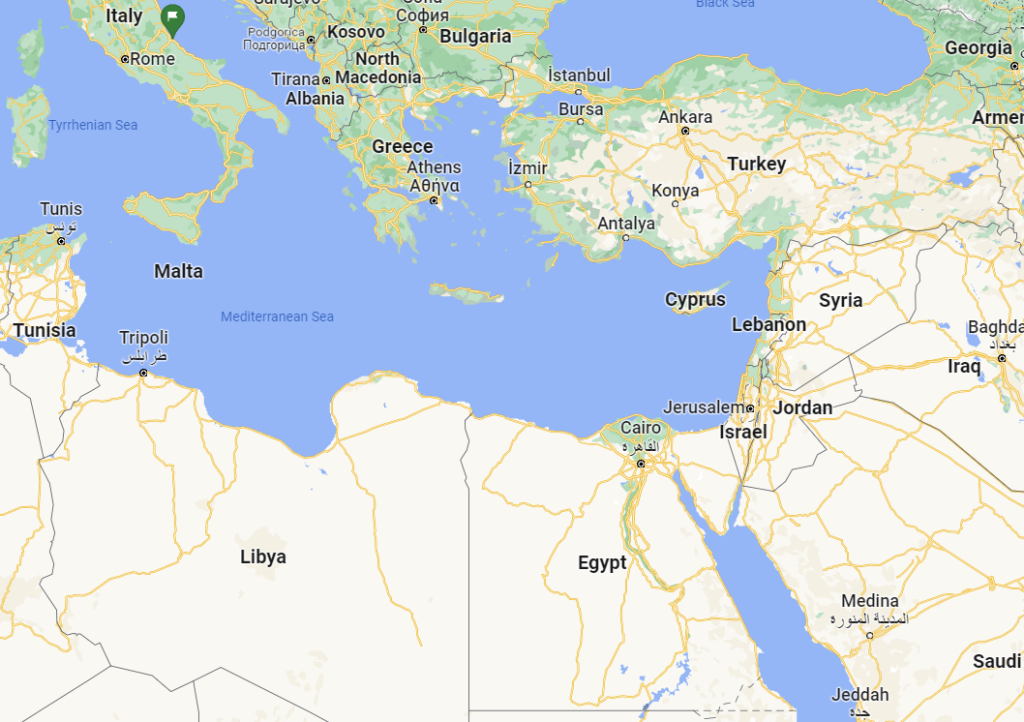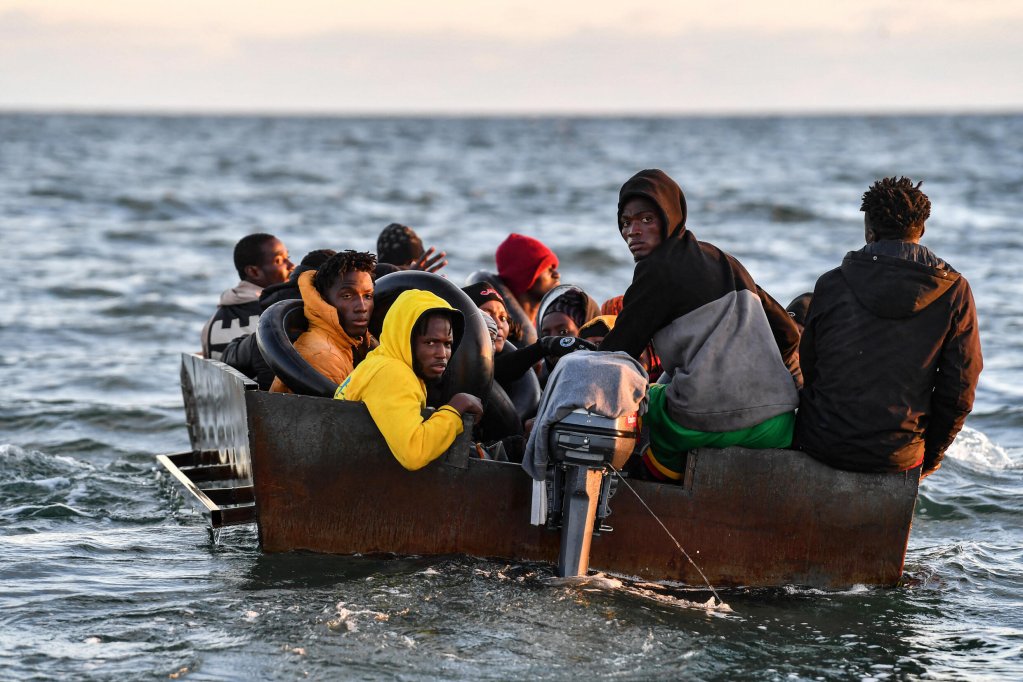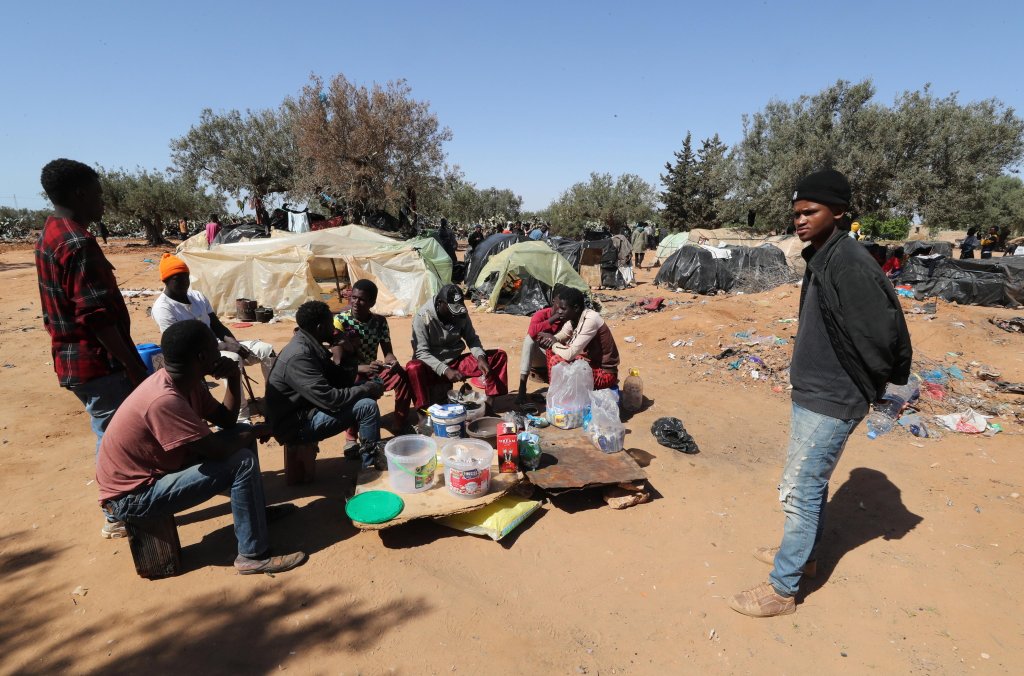The bodies of people believed to be migrants have reportedly washed up on the shores of both Egypt and Tunisia in the last few days. The UN Migration Agency IOM reported at least ten bodies washed up in Egypt and the Tunisian human rights organization FTDES stated that "dozens" of bodies had been discovered on the beaches of Sfax and Mahdia governorates in Tunisia.
On Tuesday (June 10), the UN Migration Agency (IOM) issued a press statement saying they were "deeply saddened by media reports of the discovery of the bodies of ten migrants of various nationalities that have washed ashore near Marsa Matrouh in Egypt over recent days."
The individuals, stated the IOM, are believed to have departed from Libya. "This tragedy is yet another painful reminder of the high cost of irregular migration and the urgent need for coordinated international efforts to provide inclusive, safe and regular pathways for all."
Since 2014, the IOM Missing Migrants project has documented more than 32,000 deaths in the Mediterranean Sea -- the actual number of those who went missing and died on the routes towards Europe is thought to be even greater.
"Behind each life lost is a story," stated the IOM. "Broken dreams, grieving families, and a future that will now never be realized. Our thoughts are with their loved ones."
The IOM commended the Egyptian authorities "for handling the situation in a humane and dignified manner, applying the highest standards of international humanitarian law."
InfoMigrants contacted IOM Egypt as well as IOM Libya and the media contacts at the IOM’s head offices in Geneva, Switzerland to find out more information on this discovery, but had not received a response at time of publication.
Read AlsoMediterranean crossing: At least 3 die, including 2 children

'Hidden deaths'
Meanwhile, in Tunisia on the same day, the human rights organization FTDES underlined what they called "hidden death on Tunisian coasts." Since Sunday (June 8), FTDES said that "dozens” of bodies had been discovered, thought to belong to "irregular migrants" on beaches in the governorates of Sfax and Mahdia.
FTDES said that the discovery of these bodies came "in a context in which information is withheld from the national public," and that since June 2024, "official authorities rarely publish any detailed data about the drownings along Tunisia’s coasts."
FTDES said that the "tragedies are repeated in a context in which the state has chosen to expel migrants from the places where they have been relocated since the end of 2023, without providing alternatives to shelter, especially for the most vulnerable groups."
The organization added in the press release that "expulsions to the border" were continuing for those intercepted at sea. They also accused the Tunisian authorities of confiscating migrants' phones and means of communicating with the outside world before the expulsions took place.
Read AlsoTunisia: Authorities clear around 7,000 migrants from camps around Sfax
FTDES calls for more transparency in Tunisia
FTDES said that "the scenes of death on the coasts, expulsion to the border, the burning and destruction of camps, and the testimonies of people on the move and refugees contradict the official narrative of humanitarian lessons in dealing with migrants."
The organization added that in addition to the migrant smuggling networks who are operating the boats on which people travel, and the "practices of the Tunisian authorities," the EU was also partly to blame, for "exporting European borders, securitizing migration, accepting and justifying the role of a buffer wall for the European citadel in official discourse."
FTDES expressed its "condolences to the families of the victims," and called for "more transparency" regarding migration and policies towards it in Tunisia. It said the government should do more to inform the public on how many sea crossings they were preventing, how many people were drowning and how many people they might have forcibly deported to Tunisia’s borders, as well as "details of their cooperation with the European Union."
Read AlsoMediterranean crossing: Smugglers ‘lie about all their services’ to migrants

EU funding for Tunisia
In June 2023, the EU published a paper detailing its migration support to Tunisia between 2014 and 2020. In the span of those years, the EU said that it had devoted "around 1.4 billion euros to overall bilateral cooperation … under various funding instruments." In addition, between 2021 and 2022, the EU allocated 334 million euros under the Neighborhood, Development and International Cooperation Instrument (NDICI –Global Europe). Tunisia also receives EU funding to help manage migration under the EU Emergency Trust Fund for Africa (EUTF) and the Asylum, Migration and Integration Fund (AMIF).
According to that press release, under the EUTF, the EU committed a total of 87 million euros between 2015 and 2021 via bilateral and regional contracts. "The majority of these funds go to integrated border management and fight against smuggling and trafficking in human beings, support to improved migration governance and assisted voluntary returns, protection and community stabilization and support to labor migration." The implementation of these projects is due to run until December 2025.
Under the NDICI-Global Europe fund, the EU allocated 48 million euros to Tunisia in 2021 and 2022, which helped strengthen, states the EU, Tunisia’s border management as well as its search and rescue capabilities (35 million euros) and protection and socio-economic integration (13 million euros).
In addition, states the EU document, Tunisia gets 5 million euros to support labor migration governance and labor mobility, 18 million euros to support regional action to support legal migration mobility and skills partnerships, 6 million euros for "cross-border cooperation," 10 million euros to "support police cooperation with Interpol," and 60 million euros for "regional action on protection, return and sustainable reintegration."
In 2023, a further 105 million euros was allocated to Tunisia "to cover the fight against irregular migration to and from Tunisia and the prevention of loss of life at sea (including fighting against smugglers and human traffickers, strengthening border management, registration and voluntary return in full respect of human rights," notes the EU. As well as this, the EU promised 150 million Euros to Tunisia to help prop up its budget. In total, one billion euros was reportedly promised to Tunisia by the European Commission at the time.
Read AlsoUK government strikes deal with Tunisia to tackle migration
Benefits of funding
In June 2023, the EU said that the money allocated under the EUTF had helped 433 people benefit from professional training and skills development. The money had helped offer short term protection to 6,264 migrants, had supported 822 voluntary returns and had trained 316 staff "on governance conflict prevention and human rights."
The NDICI-GE funding, noted the EU, is expected to continue until 2027 and collection of the results of that funding is "ongoing."
In late 2024, numerous international bodies and human rights organizations reported allegations that the Tunisian authorities were committing human rights violations against migrants. A report from the EU Ombudsman in 2024 concluded that there was a lack of transparency from the commission about the human rights information it held on Tunisia, and that the allegations of human rights violations in the country were "highly worrying." The ombudsman at the time, Emily O’Reilly, reportedly asked the European Commission if they could get back the 150 million euros disbursed to Tunisia in March 2024.

Questions asked by EU Ombudsman
But, in November 2024, the UK left-leaning newspaper The Guardian reported that an European Commission spokesperson had said that the 150 million euros had been paid to authorities in Tunis "after mutually agreed conditions had been met."
At the time, a Commission spokesperson told the Guardian, "the respect for human rights and human dignity of all migrants, refugees and asylum seekers are fundamental principles of migration management, in line with obligations under international law."
They added, reported the Guardian, that the EU had raised human rights obligations with the Tunisian authorities as part of the agreed deal and that significant efforts and schemes to monitor EU funded programs are in place "including monitoring the situation on human rights."
At the end of January this year, the Guardian reported that the European Commission was going to "overhaul" its funding to Tunisia and was in the process of drawing up "concrete" conditions to ensure that future European payments can only go ahead if human rights have not been violated.
European money, however, does continue to flow to Tunisia. Although it is not directly linked to migration management goals, in February this year, the European Investment Bank EIB, announced that it was "accelerating its financing in Tunisia with 415 million euros committed in 2024." The money, stated a press release from the EU, said the new financing signed in 2024 would help the EIB "consolidate its role as a key partner in the country’s economic and social development."
The money was intended to stimulate business, help Tunisia’s economic recovery programs and facilitate financing and employment. Some of the budget was allocated to modernizing schools and education, strengthening food resilience and supporting agriculture and also to invest in the energy transition and sustainable development.
Read AlsoSeeking asylum: Is Tunisia a 'safe country of origin?'
